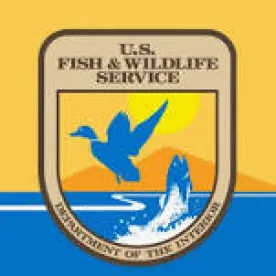The US Fish and Wildlife Service’s (USFWS or the Service) revocation of the Trump administration’s Migratory Bird Treaty Act (MBTA) rule took effect last Friday, December 3. On the same date, the public comment period closed on the Service’s Advanced Notice of Proposed Rulemaking (ANPR), in which USFWS announced its plan to issue a proposed regulation codifying an interpretation of the MBTA that prohibits incidental take, and to propose a system of regulations to authorize the incidental take of migratory birds under certain conditions.
As we explained in a recent article, the Service published a final rule on October 4, 2021, revoking its previous MBTA rule, 86 Fed. Reg. 54,642 (Oct. 4, 2021) (Rule or Revocation Rule), which was issued at the end of the Trump administration and established that the MBTA does not prohibit incidental (unintentional) take of migratory birds. 86 Fed. Reg. 1134 (Jan. 7, 2021). In the preamble to the Revocation Rule, the Service explained that “[t]he immediate effect of this final rule is to return to implementing the MBTA as prohibiting incidental take and applying enforcement discretion, consistent with judicial precedent and longstanding agency practice prior to 2017.” 86 Fed. Reg. at 54,642. The Revocation Rule’s effective date thus marks a return to uncertainty for many businesses regarding their exposure to enforcement for unintentional take of birds protected under the MBTA.
The MBTA is one of the oldest wildlife protection laws in the US, and makes it a crime for any person to “take” a migratory bird. “Take” is defined broadly under the MBTA to include ‘‘pursue, hunt, shoot, wound, kill, trap, capture, or collect” migratory birds, or attempt such activities. 50 C.F.R. § 10.12. Migratory birds protected by the Act include approximately 90 percent of all birds occurring in North America.
While the original purpose of the MBTA was to regulate over-hunting of migratory birds, primarily by commercial enterprises, in the 1970s the Service, which has primary responsibility for MBTA enforcement, broadened its interpretation and began prosecuting incidental take of protected birds (i.e., take that results from, but is not the purpose of, an otherwise lawful activity). Since that time, persons engaging in an activity likely to result in a take, however unintentional and otherwise lawful, have faced the risk of enforcement.
The Federal Courts of Appeal have split on the scope of the MBTA’s take prohibition. The Fifth and Eighth Circuits have held that the MBTA does not prohibit incidental take, while the Second and Tenth Circuits have held that it does. As a result, the geographic location in which an action occurs that could result in take of migratory birds may determine the risk of enforcement under the Act.
The Service’s interpretation of the scope of the MBTA’s take prohibition has changed as different political parties have assumed control over the Executive Branch. In January 2017, at the close of the Obama administration, the Solicitor’s Office of the US Department of Interior – of which USFWS is a part – issued a legal opinion affirming the Service’s then-prevailing position that the MBTA prohibits both intentional and incidental take of migratory birds.
Later that year, the Trump administration reversed course, issuing a superseding Solicitor’s opinion on December 22, 2017 (and ultimately the January 7, 2021 rule) that sided with the Fifth and Eighth Circuits and concluded that the take prohibition under the MBTA applies “only to actions directed at migratory birds, their nests, or their eggs,” 86 Fed. Reg. at 1134, and does not prohibit incidental take. With the Revocation Rule, which simply removes the text added to the US Code of Federal Regulations by the January 7 rule, USFWS has formally reversed course again. There is a good possibility that the Rule will be challenged in federal court.
The next regulatory step in the MBTA saga will likely be a proposed rulemaking consistent with the ANPR, which would include a proposed regulation codifying an interpretation of the MBTA that prohibits incidental take, and a proposed system of regulations to authorize the incidental take of migratory birds under certain conditions. The Service explained in the ANPR that it is considering a “three-tiered approach” to its MBTA permitting process, under which it would authorize incidental take using three primary mechanisms: (1) an exception to the MBTA’s prohibition on incidental take for noncommercial activities, (2) a general permit system under which an entity would register, pay a fee, and agree to comply with general permit conditions tailored to specific industries, and (3) a program for issuing individual permits to authorize incidental take of migratory birds for specific activities or projects that do not meet the criteria for eligibility for a general permit. 86 Fed. Reg. at 54,669. The Service’s proposed permitting program represents a new attempt at a similar effort that was initiated by the Service in 2015, 80 Fed. Reg. 30032 (May 26, 2015) but abandoned in 2018 following issuance of the December 2017 Solicitor’s opinion concluding that the MBTA did not prohibit, and thus no permitting program was needed for, incidental take. 83 Fed. Reg. 24080 (May 24, 2018).
If the Service succeeds this time in establishing a workable permitting process under the MBTA, that process could alleviate some of the uncertainty that has prevailed for years regarding enforcement risk under the MBTA, and could provide a way for many businesses to more effectively plan for compliance with the MBTA under the Service’s current interpretation of the take prohibition.





 />i
/>i
